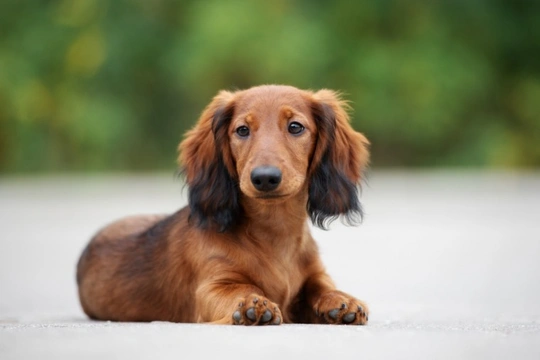
Three dog breeds prospective Dachshund buyers might consider instead
The Dachshund or sausage dog is a small, quirky-looking breed that exhibits a form or canine achondroplasia or dwarfism, resulting in short legs with a much longer body and average sized head.
The breed’s unique appearance is often what draws people’s attention to Dachshunds in the first place, but it is their personalities that have really helped to secure the breed’s huge popularity in the UK, to the point that they are now the 14th most common and popular breed overall, out of over 240 different dog breeds and types.
Dachshunds are generally highly intelligent, fun loving and very affectionate dogs, which makes them a good fit for many different types of owners. However, the breed also has some downsides too, most notably their reputation for being something of a challenge to train, and a tendency to not be overly tolerant of children.
The breed’s stature too is something that prospective buyers should consider carefully, as the Dachshund’s long back and short legs can lead to back and spine problems, most specifically a condition called intervertebral disc disease, which has a significant impact on affected dogs’ quality of life.
Whatever breed or type of dog you are considering buying, it is vital to ensure that you remain objective and able to make an informed decision, which can only be achieved by doing plenty of research into the breed first. Many prospective Dachshund owners ultimately decide against the breed as part of doing their due diligence, and it is always worth considering some other dog breeds too for comparison, as this may help you to find a more appropriate fit.
In this article we will make some suggestions of three dog breeds that might be a viable alternative choice for prospective Dachshund buyers, and share some more information on each of them. Read on to learn more.
The Pembroke Welsh corgi
The Pembroke Welsh corgi is one of two separate corgi variants and the more common of the two, and the first trait that the breed shares with the Dachshund is short legs and a long back, again caused by a form of canine dwarfism.
Like Dachshunds, the Pembroke Welsh corgi is a small breed that is smart, affectionate and full of beans, and they were actually originally used as cattle herding dogs, as their short statures made them unlikely to be kicked by a stray hoof!
Despite their shared trait of dwarfism, the Pembroke Welsh corgi breed is less associated with health issues associated with their build than the Dachshund is, and the breed as a whole tends to be healthy and hardy.
Pembroke Welsh corgis are also widely considered to be generally good with children, and make for good domestic pets for many different homes and lifestyles. They are also notable for being really amenable to training and able to learn and follow a wide range of commands, providing another advantage over the average Dachshund.
The Scottish terrier
The Scottish terrier is a small dog breed that is lively, plucky, confident and entertaining, all traits that they have in common with Dachshunds. Whilst the physical appearance of the two breeds is reasonably dissimilar, Scottish terriers are little, compact and low to the ground like the Dachshund, with a very distinctive appearance all of their own.
The Scottish terrier personality is loyal, affectionate and friendly, and they form strong bonds with their owners and look to them for direction. Training a Scottish terrier can be challenging, however, a trait they share with Dachshunds; although with the right sort of training, both breeds can be taught to learn and execute all of the essential core commands.
Scottish terriers are also another breed that is notable for being good with children as a rule, and they are commonly kept within family homes, and often bond strongly with kids and seek them out for fun and companionship.
The beagle
The beagle might not appear to be an obvious alternative to the Dachshund at a glance, but as another dog breed that falls within the Kennel Club’s hound group, they share a number of core traits as well as having a range of notable differences.
Beagles are a good middle of the road choice for people seeking an all-rounder and family pet that is lively and fun-loving without being particularly difficult or unruly, and which enjoys long, active and varied walks without being hugely challenging to tire out.
Beagles tend to be good with children, particularly children that enjoy playing with their dog and getting into mischief together!
They’re around the middle of the pack in terms of both intelligence and trainability, and whilst the breed is rarely able to learn a huge range of commands or very complex commands, they are generally quite trainable, even by first-time dog owners.
The beagle is, however, fairly intolerant of being left alone, and so they best suit homes where there are people in and able to spend time with the dog for most of the day.



